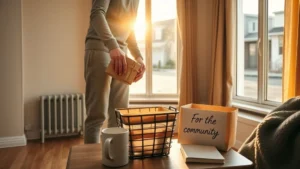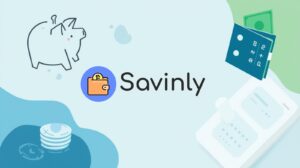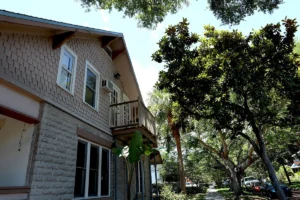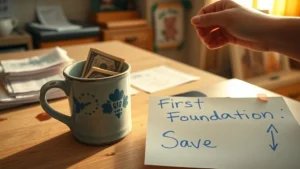Ready… or Just Daydreaming?
You ever find yourself scrolling house listings at 1 a.m., calculating and recalculating what your actual budget might be, and then… closing the app and convincing yourself to just keep renting because “maybe next year”? Yeah, me too. (Too many times, honestly.)
Buying a house isn’t just signing a couple papers and smiling for the “sold” selfie. It’s weighing your real life, with all its dinner recipes and Netflix passwords and maybe a pack of ramen noodles tucked away for emergencies. So—how do you know it’s truly time? And when you’re ready to buy a house, the best option is a what? Let’s break it all down, friend-to-friend.
Why Rents Go Boom
Should You Stick or Jump?
Renting can be a godsend at first. You can move when you want, call the landlord when the fridge dies, and, honestly, there’s something nice about not worrying if the roof leaks. But, dang… have you noticed rent just keeps creeping up, year after year?
Which best describes why renting a place to live is generally cheaper than buying a home? Well, you get flexibility and avoid big upfront fees like down payments. But on the flip side, renting doesn’t build your wealth. You’re sort of tossing money out each month without stacking equity. After a while, those rent hikes make you want to scream—especially when you realize buying, even with its headaches, could help you build something lasting. Like, you know, an actual kitchen you can paint lime green if you want.
Credit Scores: Handle With Love
How Much Does Yours Matter?
If your credit score is “meh,” don’t panic. It’s just a number—and numbers can change. Mine used to be somewhere in the “yikes” category. Once, I checked my score and audibly groaned in the middle of a grocery store. The security camera guy probably had a good chuckle.
Here’s the secret: consistency wins. Pay bills on time, keep credit balances low, check your credit report for weird surprises… A decent score opens the door to better mortgage rates. That means lower monthly payments, more money for that fancy coffee you sneak on Fridays, or just extra padding in your savings. It really is worth it.
Where’s the Money for a House?
Oh, the Down Payment Drama
Let’s get real. Saving for a down payment is… not exactly fun. It’s grit. It’s skipping that expensive sushi date (ouch). But it’s also the ticket in. You usually need at least 5% to 20% of a home’s price upfront—that’s not pocket change. On a $400,000 place, that’s $20,000 to $80,000. Don’t freak. You might not need the full 20%, but the more you save, the less you’re paying each month—plus, you might avoid pricey insurance fees.
| Home Price | 5% Down | 20% Down | Frugal Move |
|---|---|---|---|
| $300,000 | $15,000 | $60,000 | Automate saving from every paycheck |
| $500,000 | $25,000 | $100,000 | Use RRSP via Home Buyers’ Plan |
| $700,000 | $35,000 | $140,000 | Family gifts? Totally a thing |
One buddy of mine, Jenna, made it her personal mission to bag every coupon, skip every takeout, and side-hustle her way to the down payment. She did it in a little over two years, mostly by treating her savings like an unbreakable monthly bill.
Why is it important to do the five foundations in order?
Here’s the thing—don’t go all-in on down payment savings while ignoring your emergency fund or drowning in debt. Ask yourself: Why is it important to do the five foundations in order?? If you skip steps (like having a rainy day fund), you’ll be calling it “home sweet home” one minute… and scrambling to cover the broken water heater the next.
Hidden Costs: Plot Twist
You Saw the Sale Price, But…
It’s never just the sticker price. I thought budgeting for my future cozy bungalow ended with the down payment and what is your mortgage principal?… but no. Surprise! Enter a parade of other expenses: home inspections, closing costs, moving fees, utilities, and the “oh great, the kitchen faucet leaks now?” fund.
Real quick, let’s riff on what are some of the costs of living on your own?. Enjoying the freedom? Sure. But now you’re also covering heat, electricity, wifi, groceries, and all those barely-noticed things like salt for icy sidewalks or new lightbulbs. It stacks up—fast.
The general rule: budget at least 1–3% of your home’s value every year for maintenance and surprise repairs. If that sounds scary, keep renting a smidge longer and keep stacking savings. That leaky faucet or busted heater usually strikes when you least expect (mine happened mid-winter… icicles inside were a new one).
Does That Debt Matter?
Understanding the “DTI” Thing
Have you heard of debt-to-income ratio? Lenders love this stat. It’s the percentage of your monthly income you spend paying off debts. If your DTI is under 36%, you’re looking good. Higher than that? You’ll either get less favorable loan terms or—let’s be honest—potentially turned down entirely.
Think about your current bills—credit cards, car payments, loan balances, everything. Now, layer your hypothetical future mortgage on top. Can your monthly paycheck stretch that far? If the math makes you break out in hives… pause before you leap. Use a basic calculator online—plug in your actual numbers. See how much house you can handle, for real. (Tip: don’t let a lender tell you “yes!” until your budget says so.)
So, When You’re Ready to Buy a House, the Best Option Is a What?
Not One-Size-Fits-All… But Here’s My Take
Here’s the golden question: When you’re ready to buy a house, the best option is a what? Most “official” people say: a home that fits your budget, lifestyle, and long-term goals. If you want something fancier: the best option is a home you can genuinely afford, in a neighborhood you like, with a mortgage you can sleep at night with.
But let’s zoom in. These days, banks offer a buffet of mortgages and incentives. Fix-rates, variable rates, low-down-payment programs… even USDA or FHA loans for U.S. buyers that can sometimes mean zero or very little down if you qualify (seriously, I wish I’d looked harder at these in my early 20s). You might even negotiate loan “buydowns,” where the seller covers part of your costs if the market’s slow, or snag a cheaper price when houses sit a bit longer.
This is why comparing—and negotiating—is your best friend. When I signed my very first mortgage agreement, I probably could have saved another $100/month just by shopping one more quote. Ouch.
Get pre-approved before you start the serious house hunt; it sets your budget and, honestly, makes everything less scary. It also protects your time—you’re hunting for homes you know you can afford, not fairytales that’ll be ghosts the minute you apply.
Remember, what is your mortgage principal? is just the start—the core money you borrow. But the real “cost of your home” is the principal plus the interest, the insurance, taxes, maintenance, and yes, all the little fees that slip in the back door.
When Life Changes
Ever get that feeling—new job, new relationship, fresh start—where your life feels ready to settle down? That’s the sign for some folks. I watched my neighbor wait years for job security, then she pounced during a slow housing month and scored $8,000 off the asking price. (Turns out patience is underrated.)
And some people, like my cousin, bought “just in case” and now rents her spare room—a side hustle she hadn’t planned, but hey, it covered a year’s worth of heating bills!
Final Brainstorm: Buyer’s Market Vibes?
Shop Smarter, Not Just Harder
2025’s market is full of plot twists. More houses are available, rates might be coming down, and in most communities, buyers (yes, you!) have real negotiating power. Experts suggest being ready to act when rates dip even a little—literally, a 0.5% drop can save you thousands on your total payments (seriously: money-saving advice for 2025).
Don’t get caught thinking you’ll score 2% mortgage rates again—they’re gone. But you might get a lower price, lock a decent rate, or win closing cost credits from sellers eager to move their homes. You can even negotiate inspections, agent commission, or repairs before you sign. Think like a frugal boss. (Annoying? Maybe a little. Worth it? Always.)
Wrapping This All Up—Your Move
So, was this a lot? Yeah, but let’s be real. Here’s what I hope sticks: Buying a home is a wild ride. It’s part financial scavenger hunt, part soul search. There’s the money part—down payment, debt, what are some of the costs of living on your own?, credit score, and what is your mortgage principal?. There’s the emotional part—are you ready to dig in, paint a wall red, and call someplace yours?
Don’t rush if your wallet isn’t ready. Why is it important to do the five foundations in order?? So you don’t wind up house-poor and eating ketchup packets for dinner. Remember: sometimes renting, with all its quirks, really is the smarter move for a while longer.
But if the math makes sense, the stars are aligned, and you’re just itching for that house key jingle? Go on—shop, negotiate, and don’t be afraid to ask questions. When you’re ready to buy a house, the best option is a what? It’s the home you can truly afford, in a place where you’ll actually want to put your feet up. That’s all any frugal, practical, dream-chasing saver can ask for.
What do you think—are you closer to being ready, or does that bowl of ramen still taste pretty good tonight? Either way, I’m rooting for you.












